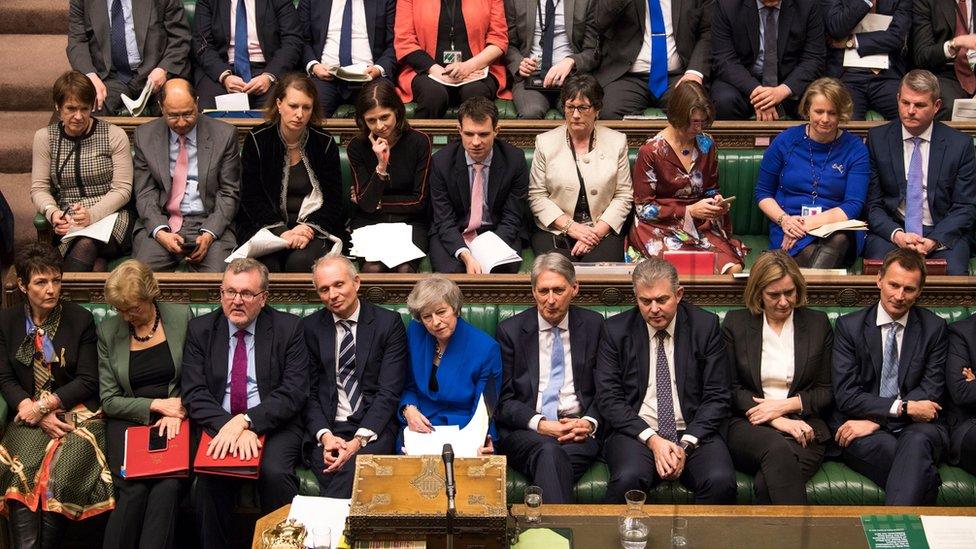What is an amendment?
- Published
- comments

There were some important votes in Parliament last night that were all to do with something called amendments
There were some important Brexit votes in Parliament on Tuesday night, which were all to do with something called amendments.
An amendment is part of the process of making UK laws, when politicians can suggest changes to an idea for a new law.
Once a new law has been put forward in the Houses of Parliament (a bill), this idea goes through various steps before it can become part of the law.
During this process, politicians are given the chance to suggest changes to it. These are called amendments. This happens at the committee stage of making a new law.
For amendments to be accepted, they need to be voted for by both Houses of Parliament - that is, the House of Commons (where elected MPs work) and the House of Lords (where non-elected politicians work as part of the law-making process).
The committee will prepare a report (this is called the report stage) which outlines the amendments it's suggesting.
If these changes are voted through, then the bill will pass through the final stages of approval - with its amendments included - before it can become law.
What was the Brexit vote last night?
On Tuesday night, there were two significant votes.
In one, MPs in the House of Commons voted in favour of an amendment that made it clear they didn't think the UK should have a no deal Brexit. Following that vote, Labour Party leader Jeremy Corbyn has agreed to meet Prime Minister Theresa May to discuss what Parliament should do.
However, the law currently says that the UK is leaving the EU on 29 March, so something would need to legally change to stop this from happening if a deal isn't in place by then.
This is the second page of three pages of the Article 50 bill, which started the Brexit process
MPs also voted in favour of amending part of Theresa May's Brexit deal called the Irish border backstop. This was called the Brady amendment as it was put forward by a Conservative politician called Sir Graham Brady.
This is part of her deal that explains how the border between Northern Ireland (part of the UK) and the Republic of Ireland (to remain in the European Union (EU) will work once the UK has left the EU.
A lot of people were not happy with this part of the deal. Critics said it left Northern Ireland needing to follow more EU rules than the rest of the UK. Many also worried it could cause conflict across the border, after an important deal called the Good Friday Agreement brought peace to those living either side of it. It could also cause a 'hard border' with checks and high security in place, which a lot of people don't want.
What happens to the border between Northern Ireland and Ireland after Brexit has caused a lot of discussion between MPs
Now these votes have happened, Prime Minister Theresa May is set to go back to EU leaders to try to renegotiate this part of the deal to a version that Parliament is happier with - and will approve.
But various EU leaders have suggested that this part of the deal can not be changed though, so we will have to wait to see what happens next.
